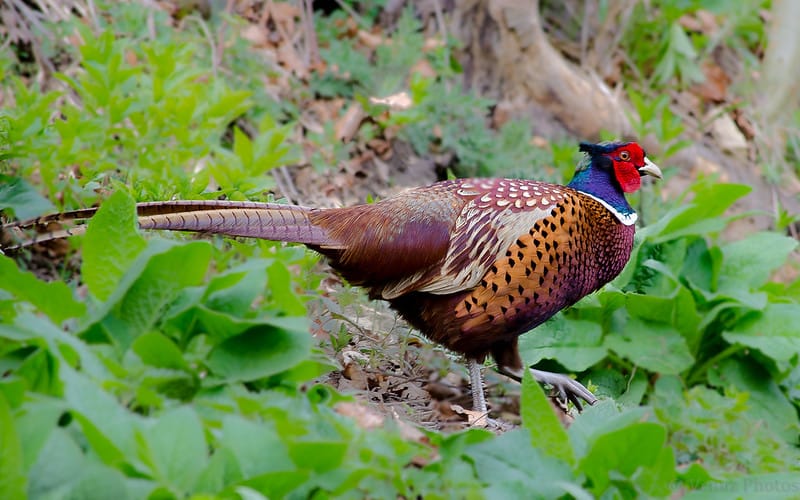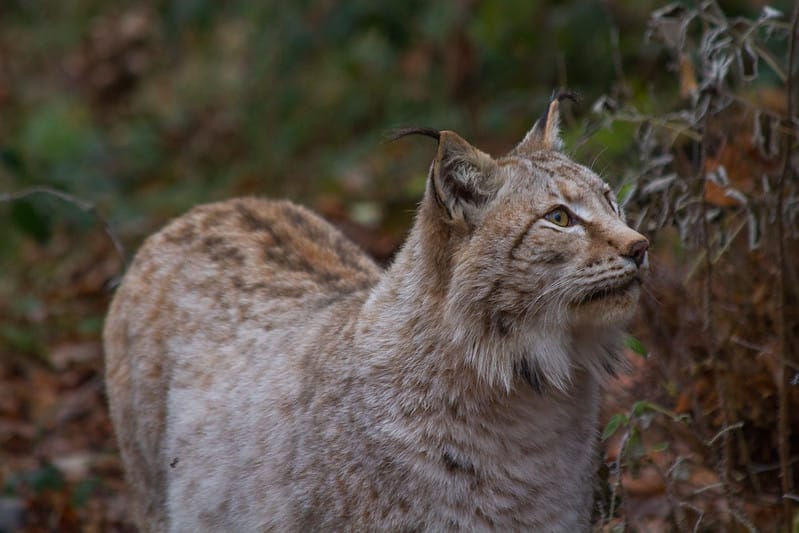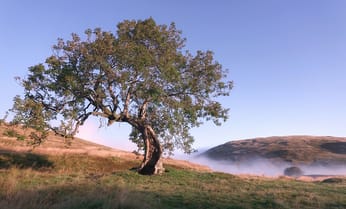
Sustainable Agriculture & Ancient Oaks
The latest news on nature and conservation in the UK.
National news
Agriculture | Environment secretary George Eustice announced the pilot of a new scheme called the Sustainable Farming Incentive, which will pay farmers for providing public goods. The government will work with hundreds of farmers through the initiative, who will be able to “build their own agreements and create greener landscapes and improve biodiversity in a way that is right for their own holding,” said Eustice in a speech; this might mean focusing on soils, grassland, hedgerows or woodland, he added. Defra spelled out more of the details in a blog. The news was covered by FarmingUK and BusinessGreen.
Trees | Tree-planting has become a contentious subject across England, reports the Guardian, as the drive to meet government targets sometimes collides with concerns for rare birds and plants. Problems with planting on peatland and heathland in Cumbria and Wareham Forest have already made the news, but this article says that the most contentious debate of all is taking place in Northumberland, over a landowner’s proposal for a plantation called Wallshield 2. The RSPB is concerned that the new forest could threaten ground-nesting birds like redshank and curlew. “We want to see trees in the ground but we want the right trees in the right place. We would say they have gone for one of the worst places with Wallshield 2,” said David Morris, the RSPB area manager for Cumbria and the northeast.
Birds | The Scotsman published three separate stories about birds this week, so I’m going to wrap them together. First, a new effort is afoot to improve the survival chances of capercaillies in the Cairngorms, with eight local people including a ranger and a gamekeeper taken on as part of the two-year Cairngorms Capercaillie Project. The other stories are less optimistic, with recent severe weather seemingly taking a toll on Scottish birds. A worrying number of barn owls were found dead in Perthshire, known as a stronghold for the species, after the recent snowfall, while scientists are concerned about the disappearance of shags from the Isle of May following recent storms.
In other news:
- Campaigners have welcomed the publication of the Scottish government’s Environment Strategy Monitoring Framework, which sets out the indicators used to assess progress on improving the environment and tackling climate change.
- Labour leader Keir Starmer has said that the government should buy more British food for schools and hospitals, reports the BBC.
- Campaigners are urging Chancellor Rishi Sunak to use the forthcoming Budget to green the financial system, reports the BBC, while northern leaders are hoping that it will provide funding for Eden Project North, reports the Lancashire Post.
- Innocent, the drinks company, has pledged to plant 50 trees in Scotland for every professional football match ending in 0-0 to help meet net-zero climate targets, reports the Scotsman.
- Defra has launched a three-week consultation to determine the details of a new interim licensing regime for the 2021 release of game birds on and around protected sites.
- The climate emergency is hitting “worst case scenario” levels, the head of the Environment Agency has warned.
- A man has admitted to stealing almost 200 wild bird eggs, including those belonging to endangered species, reports BirdGuides.
Across the country
Cannock Chase | Ancient oak trees dating back to Tudor times are being damaged by motorbikes and other vehicles riding on illegally constructed trails through Brocton Coppice on Cannock Chase in Staffordshire, reports the Express and Star. “The problem is that the roots are very shallow and quite close to the surface, so both digging up the soil, or compacting it will cause damage,” said Victoria Wilson, the council’s cabinet member for communities and culture. “We will have to repair this area by hand to prevent further trouble, but they have really damaged the root system of one of the oaks in particular, which may not survive.”
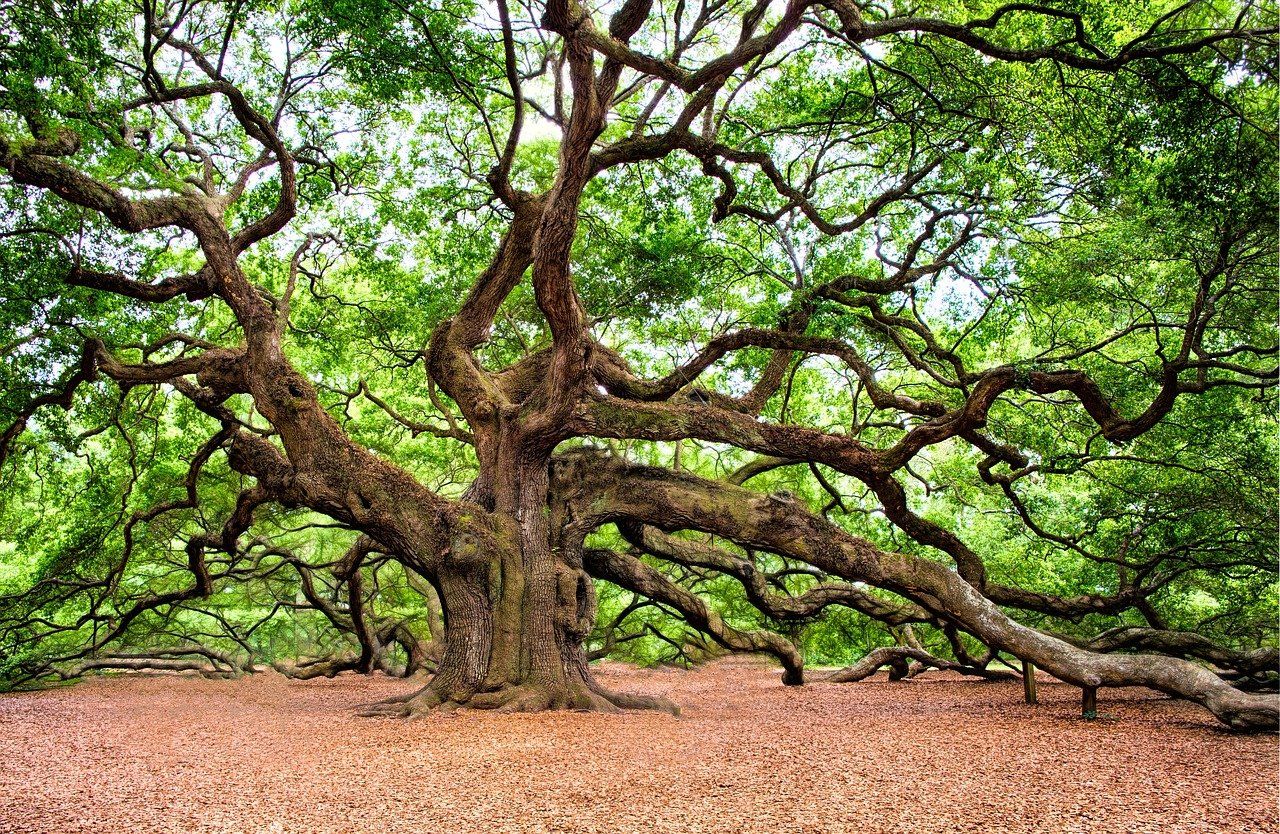
Preston | Work has started on a project to fell some 600 trees along the banks of the River Ribble as part of a £49m flood defence scheme, reports the Lancashire Post. The Environment Agency advised that the trees were removed to protect the existing flood barriers and prevent future damage to those set to be installed. While the project is awaiting the final go-ahead from the council, the trees need to be removed before 1 March to ensure that it does not coincide with bird nesting season. The Environment Agency has committed to planting five new trees for each one taken down and, according to a local councillor, there have been very few complaints about the work.
Stourbridge | Plans to create an “airport village” of more than 100 homes on an airfield site at Wolverhampton Halfpenny Green Airport have met with opposition from the Staffordshire Wildlife Trust. The charity has sent an objection to South Staffordshire District Council, complaining that the proposed development site is close to their Highgate Common nature reserve and provides important habitat for lapwing, skylark and curlew. “This would appear to result in a net loss of biodiversity, contrary to local planning policy which encourages enhancement of nature,” said Kate Dewey, the Trust’s senior planning officer. Meanwhile, in Market Drayton, a scrubby riverside area known to host badgers, otters, and kingfishers has been cleared to make way for a “sustainable” development, reports the Shropshire Star.
Elsewhere:
- Cumbria Wildlife Trust has introduced three fell ponies onto one of their nature reserves as part of a conservation grazing project; another grassland restoration project is underway around Dover Castle in Kent.
- A Scottish clergyman has been broadcasting his sermons from some of the beautiful landscapes around his home in Perthshire, reports the Shropshire Star. Some wonderful pictures in this one.
- A peregrine has been shot with a pellet gun in Northumberland, reports BirdGuides.
- Surrey Wildlife Trust is building giant sandcastles to encourage sand martins to nest at their reserve for the first time in 25 years.
- An argument has broken out over scrub clearance in a woodland in Sheffield, reports the Yorkshire Post.
- Campaigners claim that up to 100,000 trees could be felled to make way for the A38 expansion, reports the Derby Telegraph.
Reports
Green Belt | CPRE has released its regular report on the threats facing the Green Belt – that is, the green space that sits around towns and cities to maintain the openness of the countryside. It finds that these areas have become even more important during the pandemic, yet the pressures are greater than ever, with a quarter of a million homes planned for these areas, a rise of 475 percent since 2013. CPRE says that there’s already enough space on brownfield land for all the affordable homes we need – although it’s worth remembering that these spaces can also be valuable for wildlife, as a recent Inkcap article highlighted.
Farming | The National Farmers Union had its annual conference this week, and launched a report called Levelling Up Rural Britain to mark the occasion. It’s a manifesto covering a wide range of topics, including broadband connectivity and crime, but the environment and climate change is a big part of its framing. “Rural Britain – and the farm businesses that lie at its heart – has a crucial role to play in developing, implementing and making a success of the new green agenda,” writes NFU president Minette Batters in the introduction.
Charities | If you want an easy and uplifting read, this report by Scottish Environment LINK profiles 15 nature restoration projects happening across the country, including the Cairngorms Wild Plants Project, the promotion of woodland pasture at Glen Finglas, and the Out There Award to help young people to get outdoors. Complete with pictures of nice wildlife and volunteers looking industrious.
Science
Birds | A study in Ecological Indicators looks at how human activities such as agriculture, deforestation and the drainage of wetlands have impacted the distribution of bird species across the UK. Academics from Durham University and the RSPB used simulation models to remove humans from the landscape – they found that there were both winners and losers, with 42 percent of 183 breeding bird species actually more widespread in today’s human-impacted world, mainly due to their reliance on farmed habitats. Conversely, moorland, upland and woodland would be much more widespread in a human-free world. The RSPB has a helpful blog explaining the implications of these findings for conservation.
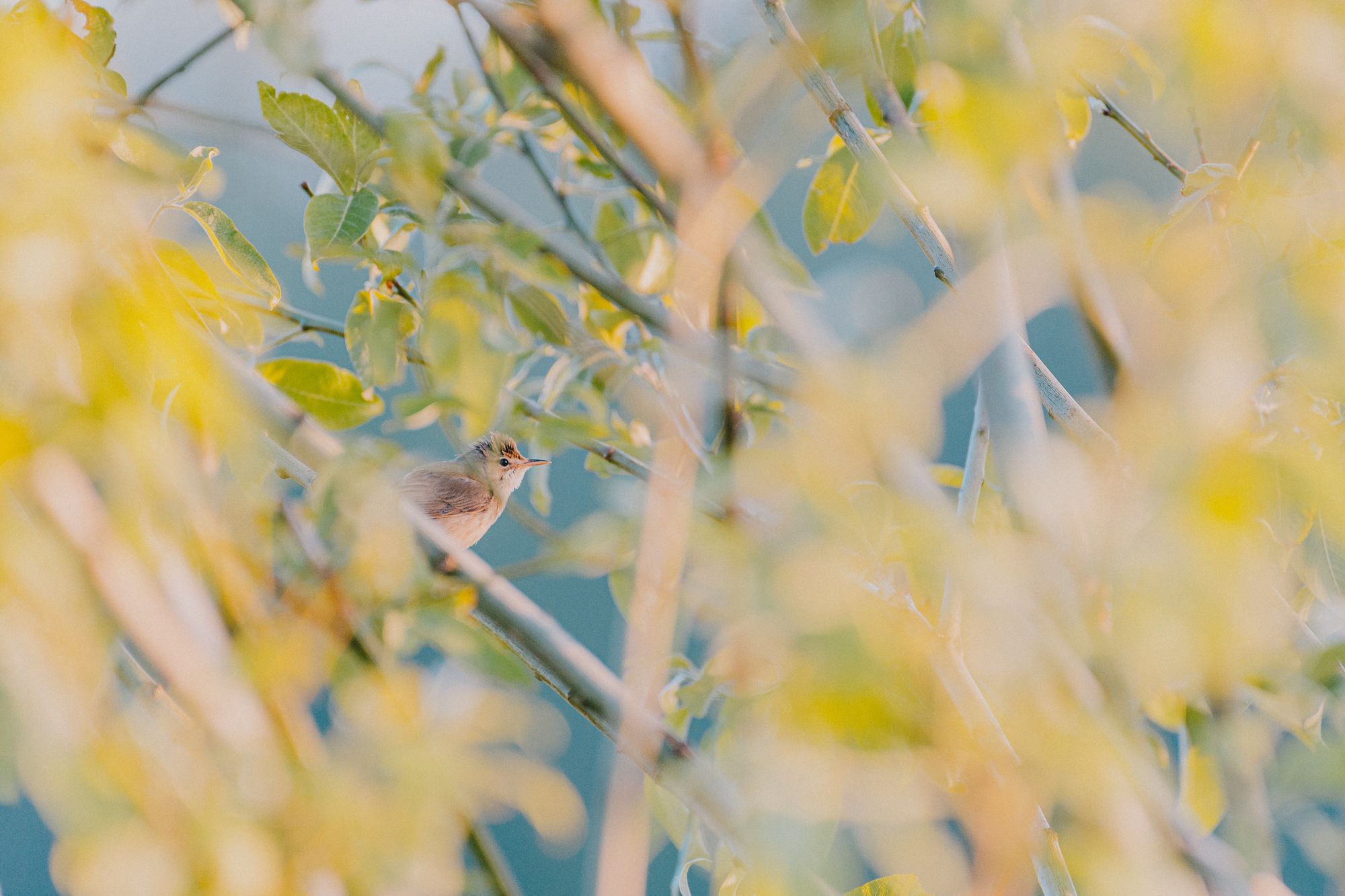
Shooting | A study in Conservation Evidence Journal, produced by a coalition of academics from across the UK, finds that almost all pheasant meat bought in shops has been shot using lead bullets, despite a joint statement from nine shooting organisations pledging to transition away from toxic ammunition in February last year. The paper is a paragon of lockdown science: the researchers bought locally available pheasants and dissected them in their own kitchens, extracting the shot and sending it off for analysis, as the BBC explains.
Rivers | A study in Science finds that fish biodiversity in over half of all river systems across the globe has been heavily affected by human activities, with populations becoming increasingly homogenous as non-native species are introduced into waterways. Less than 14 percent of the world’s river basin surface had escaped serious impacts on biodiversity, the researchers found. “The River Thames is one of the most impacted – it scored the maximum 12 out of 12 in our study,” one of the authors told the Guardian. A report released by WWF this week similarly looked at the “catastrophic decline” in freshwater fish around the globe; the Telegraph reports how Britain’s rivers should be returned to their “natural state” to help save the eel, while the Independent focused on the poor chemical state of Britain’s rivers.
Driftwood
Rewilding | Off the back of the launch of last week’s campaign to make Scotland a “Rewilding Nation”, journalist and campaigner Adam Ramsay writes in OpenDemocracy about the need to force the issue of rewilding onto the agenda ahead of the Scottish election in May. He speaks powerfully about the loss of wildlife throughout Scotland, although the piece also prompted some interesting discussion around the absence of people in this vision. An article published in ECOS provides some useful context on this debate: “While rewilding and ‘wildness’ linked activities might be welcome in cases where they provide economic or other benefits to communities, people must always come first,” the author writes.
OxCam Arc | A coalition of NGOs, including the RSPB and two branches of the Wildlife Trusts, has called on the government to double the land area managed for nature in the proposed Oxford-Cambridge Arc development, following the government’s announcement that it intended to transform the area into the UK’s “fastest growing economic region”. The charities continue to oppose the project’s most environmentally damaging proposals, including the Oxford-Cambridge Expressway. In case you’ve forgotten, last summer George Monbiot wrote a scathing article on the failure of these NGOs to wholly condemn the “megalomaniac scheme” – the NGOs in question set out their response to the criticisms here.
Diversity | An essay in ECOS – the winner of its undergraduate writing competition – examines the lack of diversity in the conservation movement, starting with the roots of this problem and moving towards some ideas for how to boost inclusivity. “Nature-based psychotherapist Beth Collier points out that, due to being treated with such hostility, the parents and grandparents of people of colour have historically associated remote spaces with danger,” the author, Sorrell Wilson, writes. “This [fear] is therefore not the result of some biological or cultural disconnect, but of trauma that white people have inflicted onto minority communities.”
Further reading:
- Data for Wales has now been added to the River Trust’s map of raw sewage discharge.
- Natural England has published a blog about its Moorland Change Map, which shows changes and even active burns in England’s uplands.
- Andrew Stark, RSPB Scotland’s land use policy officer, spells out what he would like the Scottish elections to deliver for Scottish agriculture.
- Froglife has written about the impacts of climate change on the UK’s reptile populations.
- On the auspicious occasion of Natural England’s 100th board meeting, Tony Juniper looks back on the organisation’s achievements to date – while also pointing out the significant reductions in public funding for its work.
- As the last mountain hare season in Scotland comes to an end after culling was recently banned, the RSPB’s James Silvey looks at what these new protections mean.
Happy days
Soundscapes | The brilliantly quirky musician Cosmo Sheldrake has composed a 30-minute-long piece of music for the BBC, comprising recordings from woodlands taped by Sheldrake himself. It includes a nightingale in a coppice in Kent, the dawn chorus on a midsummer morning, and a bumblebee pollinating bluebells. It’s only online for ten more days, so get in there quickly! I listened to it while writing this very newsletter.
Image credits: Illiya Vjestica, RegalShave, Siim Lukka
Subscribe to our newsletter
Members receive our premium weekly digest of nature news from across Britain.
Comments
Sign in or become a Inkcap Journal member to join the conversation.
Just enter your email below to get a log in link.


